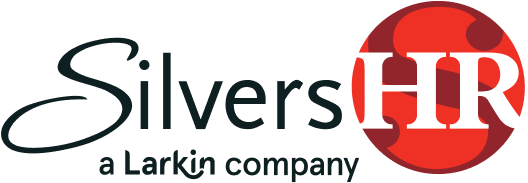By Katie McConnell Olson, CPA, PHR
Have you ever sat in complete silence with a stranger for ten whole minutes? It feels like a really long time. Sometimes two minutes of silence with a stranger can feel like a lifetime!
The good news is that there is real power in harnessing that quiet and blank space, and you can use it as a tool in your business to increase effectiveness, success, interview process and sales.
Human tendency, especially when we are trying to connect with new people and build new relationships, is to talk. We want to fill blank space. A good sales person also wants to deliver solutions and add value because that is how to close a deal (and give our clients what they need). An interviewer sitting across the table from a candidate wants to keep the conversation flowing.
We all want to talk and to connect. This means that interactions with other extraverted people are really natural. Either they do all the talking and then make a decision about us, or we compete for the floor and hopefully in the process we find some common ground and decide we like each other. When we are interacting with others that are a bit slower to respond and take pause to think, we can find ourselves in the muck.
Let me demonstrate with a story.
As a hiring professional, part of my job is interviewing candidates (read: getting strangers to tell me things so my clients can make an assessment about if their level of crazy matches someone else’s).
A few weeks ago, I was on site leading interviews with a client. Interviews were going great, until Bob (name changed to protect the innocent here) showed up for his interview. Bob barely said two sentences the entire interview. After the hour was over, I asked the client what he thought of Bob.
“What did you think of Bob?” I asked.
“Well he barely said anything so it’s hard to say,” my client replied.
“THAT’S BECAUSE YOU NEVER LET HIM TALK!” I quipped back.
“Bob wasn’t saying a whole lot so I felt I needed to keep the conversation moving,” he said.
“It’s okay to have blank space.” I told him, and I shared the tools I am sharing with you here.
First, a question for you to explore: What happens when we don’t give others the space to share?
If you are like me, you often find that your mouth is sometimes faster than your brain, which means that you also find your foot in it more than you would like. We also fill in the gaps with our own assumptions (about who people are / what they need). We never actually get to their true need because we falsely anticipate it, and thus, we sometimes find our foot firmly inserted into our mouth. When we don’t get to know someone and adequately build that critical relationship, we don’t land the deal. We make a bad hire. We don’t make new friends. We (insert fail here).
Our natural tendency is to want to fill that empty space because it feels uncomfortable. And the truth is, there is power in being in charge of that discomfort.
Imagine a full cup of water. In order to put more in the cup, we have to first empty the cup. The more empty the cup gets, the more we can pour back in. The solutions and ideas you are delivering are what you are pouring in. The more empty their cup, the more receptive they are to you. In the case of a job interview, the more you empty their cup, the more you get to know the person sitting across the table from you. I call this “emptying the cup.”
Most of the time, in order to get to the root issue (the one you are there to deliver a solution for), a person must empty their cup all the way to the bottom, including talking about how stuff feels and their concerns and hesitations. Bad news for those of you that hate the touchy-feely. Feelings are usually like the sediment at the bottom of the cup. You have to pour out all the other stuff before you can get there.
It turns out when you give empty space to listen, the person sitting across the table from you really feels heard. And valued. Automatic brownie points for you for giving them a great experience simply by keeping your blabber shut, nodding your head and making some noise to evidence you are indeed listening and interested to what they are saying. (Okay, I am simplifying here but you get my drift.)
Word tracks like:
Why do you think that is?
Tell me more about that
You said it feels like _______.
What do you mean?
Are all opened ended ways to take the lid off someone’s proverbial cup and let the pouring begin.
And then sit. In blank space. No matter how weird it feels to sit and watch their face, I promise, eventually they will talk. Let them. And then ask again. Keep going layer after layer into the question until you have reached the bottom of the cup. They will feel heard. And you will win.
About Katie
Katie is the Founder and CEO of Hire Education Consulting Group, Inc. She is a licensed CPA and PHR (Certified Public Accountant, Professional of Human Resources) with a background in consulting advisory and talent acquisition. Prior to launching Hire Education Consulting Group, Katie was involved in several start-up ventures and led a search practice with a national CPA firm.
Her practice focuses on strategic recruitment initiatives including talent process improvements, organizational assessments, hiring initiatives and full-service search consulting.
